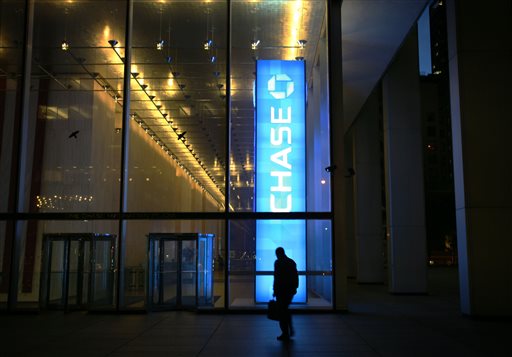As updates emerge about the tentative agreement for the nation’s largest bank – JPMorgan Chase – to pay the Justice Department’s largest bank settlement in history for allegedly selling high-risk mortgage-backed securities amid the recent financial crisis, experts and media outlets like The Washington Post speculate, “Does the reported settlement serve the ends of justice?”
Videos By Rare
The record fine of $13 billion, more than half of its 2012 net income of $21.3 billion, appears to be Washington’s first attempt at sending a clear message to banks – this type of behavior will not be tolerated anymore.
Even after combining multiple lawsuits against the bank into the lump settlement, and paying $4 billion in consumer relief for pension-fund holders and homeowners hurt in the housing market collapse, the bank will still be subject to a criminal investigation for alleged misconduct in multiple, seemingly fraudulent trading methods and activities.
“The populist narrative casts the crisis as a crime consciously perpetrated by greedy financiers on an unsuspecting public. This version of events does not allow for the possibility that everyone, from Wall Street to Main Street to Washington, acted on widely held economic beliefs that turned out not to be true — the most important of which was that house prices would never come down and could therefore offset the risk of default on home mortgages,” the Post editorial board wrote Wednesday.
Though not a direct defense of the banks engaged in approving subprime loans, trading and insuring high-risk mortgage-backed securities – which, in large part, crashed the U.S. financial system and sent the country into recession in 2008 – the Post perspective has become a popular narrative in defense of investors since the crisis.
Among the myriad of obvious-guilt details that narrative leaves out, the biggest is leverage. Lehman Brothers – the first investment bank to declare bankruptcy and go under at the outset of the crisis, and the fourth-largest in the country at the time – had a leverage ratio of 44:1 in 2007 before the crisis.
That means it had 44 times its own equity in assets before the crash, the majority of which were in the housing market. Less than a 5-percent decline in the value of those assets would virtually wipe out the bank’s tangible value – and it did, to the tune of about $600 billion when it filed for bankruptcy.
In general terms, Lehman was gambling 44 times its own worth in largely one sector of the market, leaving it at the mercy of even a small drop in value – a market with decreasing standards for investment, and growing likelihoods of default.
Sure, companies like Lehman and JPMorgan insured their high-risk investments through companies like AIG, but so did every other major bank, leaving insurers saddled with more in policy coverage than they could ever hope to pay out – essentially making them guilty of a similar business practice.
Though federal regulatory leverage and capital asset standards were lax at the time, it is safe to assume Lehman’s investors would not approve of such an excuse for reckless investment practices born out of greed on a scale of 44:1, with the additional investment sin of putting your eggs in one proverbial basket.
If not outright guilt, that is at the very least grossly negligent and highly irresponsible – especially when you gamble with other people’s money.
As recently as July, in the face of new federally regulated leverage standards, JPMorgan Chase Chief Financial Officer Marianne Lake declined to reveal a current, specific leverage ratio for the bank.
Until recently, regulatory fines were just the price of doing much bigger, higher-profit business for banks like JP Morgan. Despite opinions to the contrary, it is hard to imagine a better precedent than the nation’s biggest bank paying out half a year’s profits in a highly publicized lawsuit.
Though investors will be on the hook for a large part of the fine, the pending criminal investigation may finally succeed in “making a bad example of JPMorgan Chase.” The only question left is whether it will make any difference in the future of the financial industry without the follow up of real, regulatory reform
Related articles
- JPMorgan’s Eminence Seen Fading in Default Swaps (bloomberg.com)
- JPMorgan Chase Could Face Massive Fine (newday.blogs.cnn.com)
- Bank of America Decision Likely to Weigh on JPMorgan Chase (dailyfinance.com)
- JPMorgan Settlement a Sign of Things to Come (hispanicbusiness.com)

